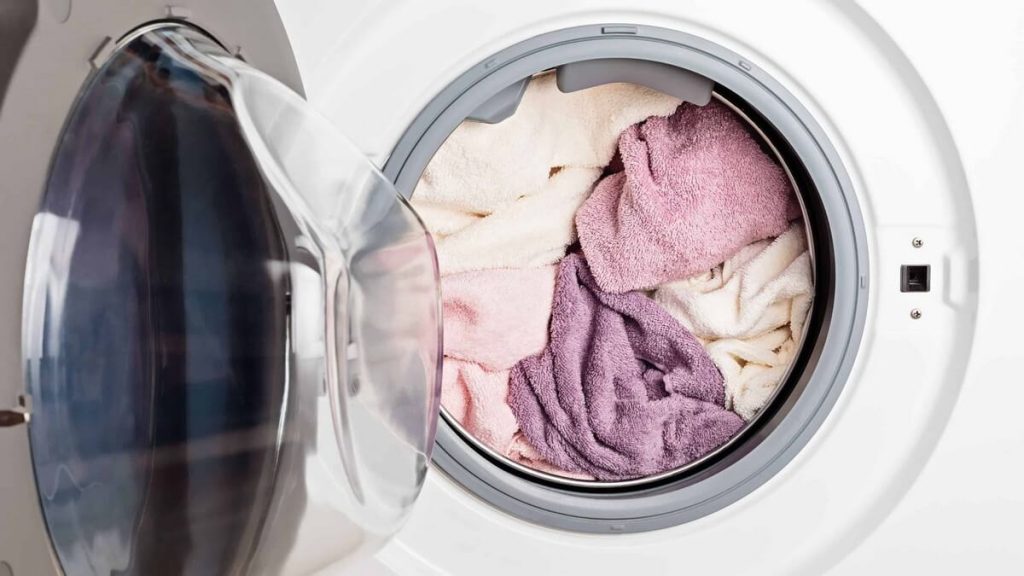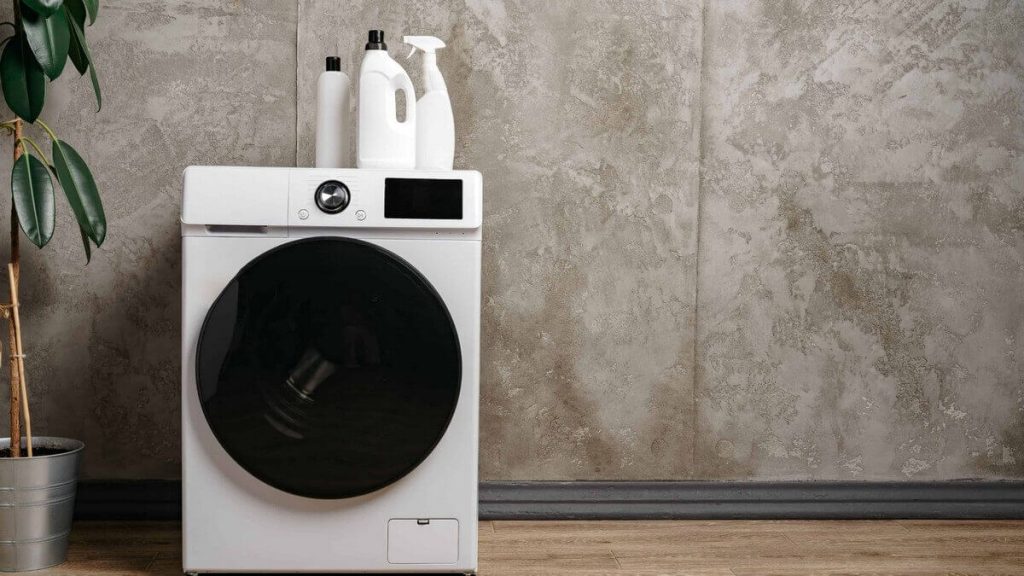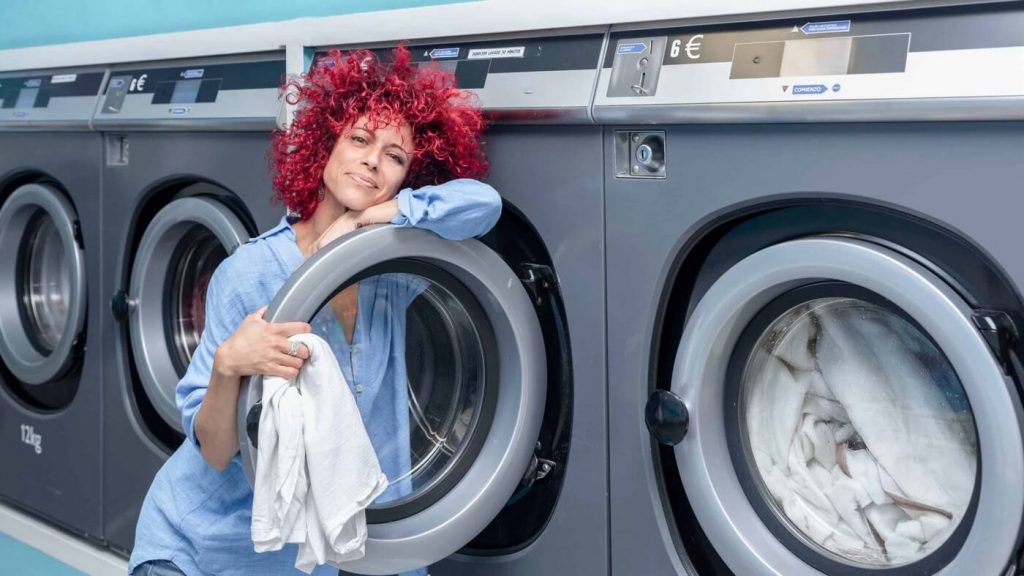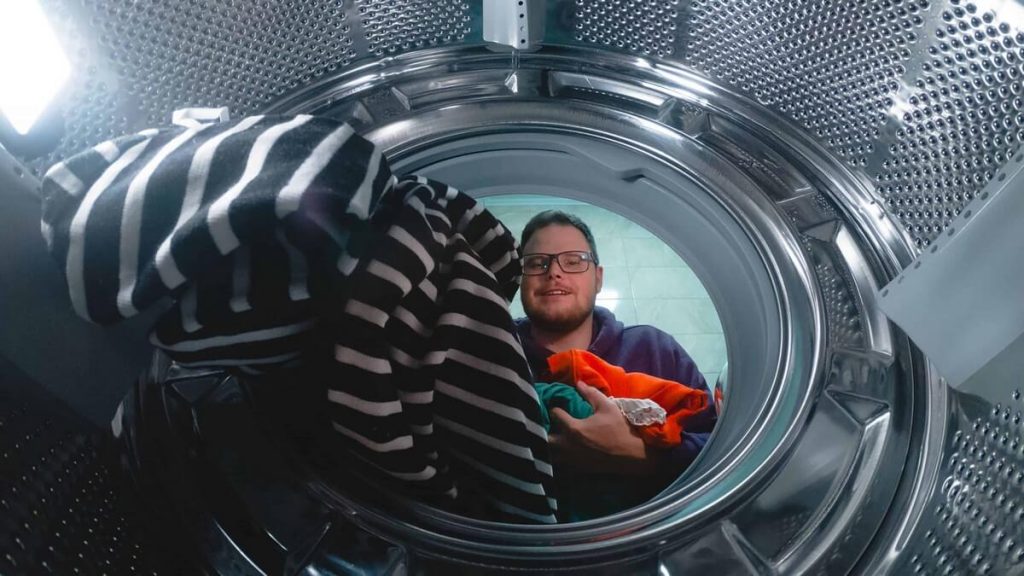
Welcome to our guide on DIY washing machine repair tips for small issues. Washing machines are essential appliances in our homes, but they can often experience problems that require repairs. While some issues may seem complicated and require professional assistance, many common problems with washing machines can be easily fixed with a little know-how and some basic tools. By learning how to tackle small issues yourself, you can save money and avoid the need for costly washer repairs.
In this section, we will share some helpful tips and tricks to help you troubleshoot and fix common problems with your washing machine. From leaks and excessive noise to failure to start and more, we will cover various issues that you may encounter and provide solutions to help you resolve them yourself.

At some point, every homeowner experiences issues with their washing machine. Understanding common washer problems is essential to troubleshooting and fixing the issue. Below are the most common washing machine issues:
If you’re experiencing one of these issues, don’t panic. Instead, read on to learn how to troubleshoot and fix these common washing machine issues.
A leaking washing machine can be a major inconvenience, but there may be an easy fix. The first step is to check the hoses that connect to the back of the washer, ensuring they are correctly connected and tightened. If you find that the hoses are still leaking, check for cracks or tears, and replace them if necessary.
If your washing machine is making excessive noise and shaking during operation, it may be due to an unbalanced load. Try redistributing the clothes evenly in the machine and reduce the size of the load. If this doesn’t solve the problem, check if the machine is levelled properly. Adjust the legs of the machine to ensure it is levelled so that all four feet are firmly on the ground.
If your washing machine won’t start, first confirm that it’s plugged in and the circuit breaker hasn’t tripped. If these basic checks don’t solve the problem, the issue may be with the door latch or the timer knob. In this case, it’s best to call in a professional to inspect and repair the machine.
If your washing machine isn’t spinning properly, it may be due to an unbalanced load or a clogged drain filter. Check that the clothes are distributed evenly in the machine and remove any excess lint or debris from the filter. If the problem persists, it could be due to a faulty motor or transmission, requiring professional repair.
If your clothes aren’t coming out clean after a wash cycle, you may need to adjust the amount of detergent or use a different kind of detergent. Check your machine’s user manual for recommendations on detergent type and amount based on load size. Also, consider cleaning the drum of the machine, which can become dirty over time, affecting cleaning performance.
If the detergent, bleach, or fabric softener isn’t dispensing correctly, the dispenser drawer may be clogged or damaged. Remove the drawer and clean it thoroughly, making sure all the compartments are clear of debris. If the issue persists, consider replacing the dispenser drawer.
If your washing machine won’t drain, first, check the drain hose for clogs or kinks. If the hose is clear, the issue may be with the drain pump or the lid switch. In this case, it’s best to call in a professional to diagnose and repair the issue.
By understanding these common washing machine problems and their causes, you can troubleshoot and fix your machine yourself. However, if you’re unsure about the problem or how to fix it, it’s best to call in a professional technician to avoid causing further damage.

Now that you have identified the issue with your washing machine, it’s time to get your hands dirty and perform the necessary washer repairs. These DIY repairs are simple and can save you time and money. Let’s dive into some troubleshooting tips and easy solutions for common washing machine issues.
If your washing machine isn’t draining correctly, the issue may be a clogged drain hose. To fix this, locate the drain hose at the back of your washer and detach it. Place a bucket underneath to collect any remaining water, then remove any debris or blockages from the hose. Reattach the hose and ensure it is secure before running a cycle to confirm the issue is resolved.
If your washing machine is not filling up with water, the water inlet valve may be faulty. To replace the valve, first, unplug the machine and locate the valve at the back where the water supply hoses attach. Remove the hoses and disconnect the wiring. Use pliers to release the valve and install the new one. Reconnect the wiring and hoses and secure them tightly. Finally, plug in the machine and test it to ensure the issue is resolved.
Over time, your washing machine’s filter can become clogged, causing it to perform poorly. To clean the filter, first, locate it at the front of your machine. Remove the cover and take out the filter. Rinse it under running water and brush it gently to remove any debris. Reinstall the filter and cover, and your machine should run smoothly again.
By following these DIY repair tips, you can avoid the hassle of calling a repair technician and save money in the process. However, if you encounter a more complex issue or are unsure of how to proceed, it’s always best to seek professional help to avoid causing further damage to your washing machine.

If you want to extend the lifespan of your washing machine and avoid costly repairs, it’s important to take preventive measures and perform regular maintenance. Here are some simple maintenance tips to help you prevent washing machine problems:
Over time, dirt, grime, and detergent residue can accumulate in the drum and detergent dispenser and cause unpleasant odors and poor washing performance. To prevent this, we recommend cleaning the drum and detergent dispenser at least once a month. You can use a mixture of hot water, vinegar, and baking soda to remove buildup and leave your washing machine smelling fresh.
Leaks are a common problem with washing machines, and they can cause water damage to your home. To prevent leaks, make sure to check the hoses and connections regularly for signs of wear and tear. If you notice any cracks, bulges, or other damage, replace the hose immediately. It’s also a good idea to tighten the connections periodically to ensure they’re secure.
Washing machines that are not level can cause excessive vibration and noise during operation, which can lead to premature wear and tear. To prevent this, use a level to make sure your washing machine is even on all sides. If it’s not, adjust the feet until it’s level.
Using too much detergent can cause buildup and clog the system, while using too little can result in poor cleaning performance. To get the best results, follow the manufacturer’s instructions for the amount of detergent to use based on the load size and water hardness.
Small washing machine problems, like a clogged drain or a faulty valve, can quickly escalate into bigger issues if left unaddressed. To prevent this, address small issues promptly by following the DIY repair tips in Section 3. By taking care of small problems early on, you can prevent bigger problems down the road.
By following these simple maintenance tips, you can prevent washing machine problems and extend the lifespan of your appliance. If you’re still experiencing issues after performing these preventive measures, it may be time to seek professional appliance repair services.

While we encourage homeowners to tackle small washing machine repairs, there are times when professional appliance repair services are necessary. It’s essential to recognize when the problem is beyond our DIY tips and requires the expertise of an experienced technician.
If you’ve followed our troubleshooting guide and still can’t identify the issue, it’s time to call in the experts. A professional appliance repair service will have the tools, knowledge, and experience to diagnose and fix the problem quickly and efficiently. Attempting to fix the problem yourself can lead to further damage or even cause safety hazards if you’re not familiar with the appliance’s internal workings.
Also it’s good to note, if the repair requires specialized parts or tools, the experts will have access to them and can get the job done right the first time. A reliable repair company, such as Express Appliance Repair, will offer a warranty on their work, giving you peace of mind that the repair will last.
We pride ourselves on our commitment to customer satisfaction. Our technicians are fully licensed and insured, and we offer same-day service to help minimize any inconvenience caused by a broken washing machine. We provide transparent pricing and will provide a quote before any work begins.
Don’t let a broken washing machine cause undue stress. When DIY repairs aren’t enough, trust our team of expert technicians to get your appliance running smoothly once again. Contact us today for professional appliance repair services.
Yes, you can repair your washing machine yourself for small issues. Our DIY washing machine repair tips will guide you through the process and help you save money on service calls.
The most common problems with washing machines include leaks, excessive noise, failure to start, and more. Understanding these issues will enable you to troubleshoot and find the appropriate DIY repair steps.
Our step-by-step instructions will guide you through DIY repairs for small washing machine issues. From unclogging the drain hose to replacing a faulty water inlet valve, you’ll have all the guidance you need to fix common problems.
Yes, we have valuable tips and tricks for preventing future washing machine problems. Regular maintenance tasks such as cleaning the drum and detergent dispenser, checking the hoses, and leveling the machine can help extend the lifespan of your washer.
While DIY repairs can solve many common washing machine problems, there may be instances where professional assistance is necessary. If you’re unsure or need expert help, it’s best to seek the assistance of professional appliance repair services like Express Appliance Repair.